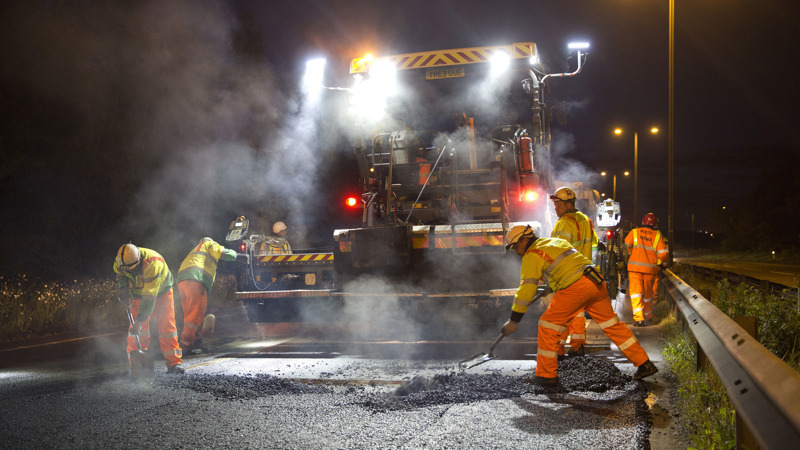Near net zero road resurfacing project announced
This October, we'll carry out the lowest carbon road resurfacing scheme we've ever attempted on our network - on the A64 in Yorkshire

Share this article
By using innovative materials and working methods throughout the project, we estimate we can reduce the carbon footprint for this scheme's construction by around 70%.
Sharing learnings
The journey to this project has been informed by countless innovations across the highway industry.
This included our low carbon asphalt trials coordinated from a research lab at the University of Nottingham.
We'll widely share learnings from this project to help tackle the sector-wide challenge of decarbonisation.
Collaboration with local authorities, contractors, and academia is crucial:
- to leverage expertise
- share experiences
- collectively adopt new approaches aimed at achieving net zero carbon emissions
Innovative solutions
We'll develop the scheme using a variety of innovative solutions that we are expecting to deliver carbon savings. These include lower carbon materials, equipment and working methods.
For example:
Enhanced road surface materials
Using materials with lower carbon content.
Longer-lasting road markings
Using extended life asphalt and durable road marking materials to reduce future maintenance needs and associated carbon emissions.
Electric rollers
Minimising noise and tailpipe emissions.
Hydrotreated Vegetable Oil (HVO) fuel
Using HVO for transport vehicles, and other non-electric asphalt laying equipment.
Echelon paving method
By laying asphalt across the entire road surface we can:
- minimise joints
- extend the road’s lifespan
- reduce maintenance-related disruption.
Solar-powered welfare facilities
Using solar energy for our on-site staff facilities.
Traffic management
50% of the cones used will feature reflectors rather than battery powered lamps.
The delivery team
The project is being delivered by an innovative team including:
- National Highways
- Tarmac
- HW Martin traffic management
- Premier Roadmarkings
Each is bringing low carbon innovations to the project, to reduce the emissions of construction as much as possible.
"We’re taking positive steps towards a more sustainable, decarbonised future. We hope this project will pave the way for industry-wide changes, resulting in significant carbon savings and improved road surfaces for drivers."Angela Halliwell, Head of Carbon and Environmental Sustainability Strategy and Planning, National Highways
